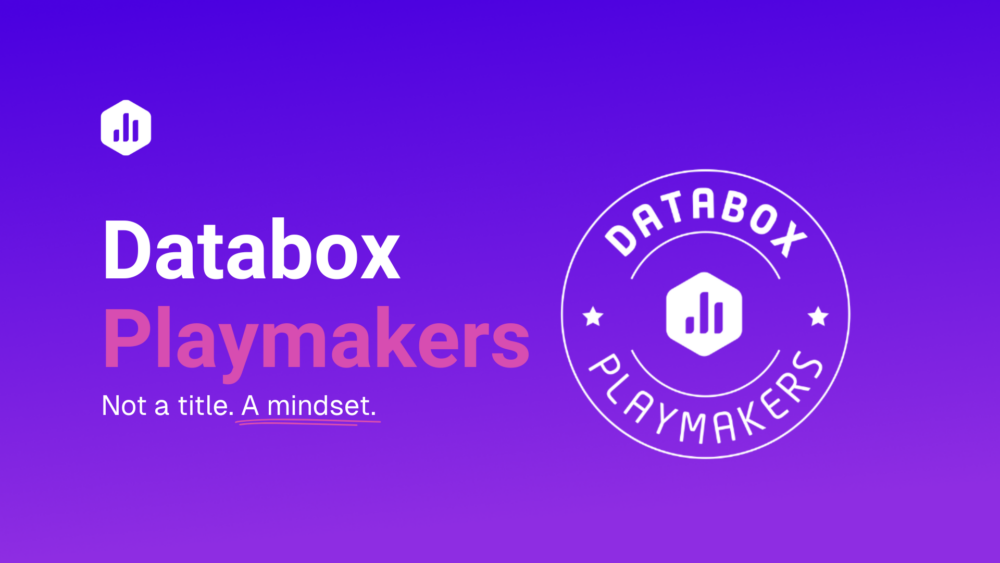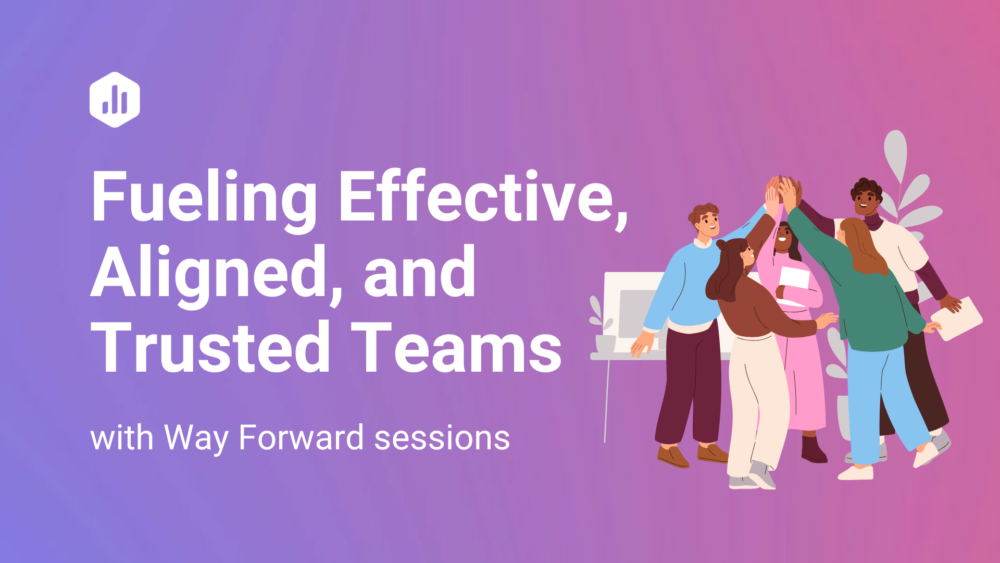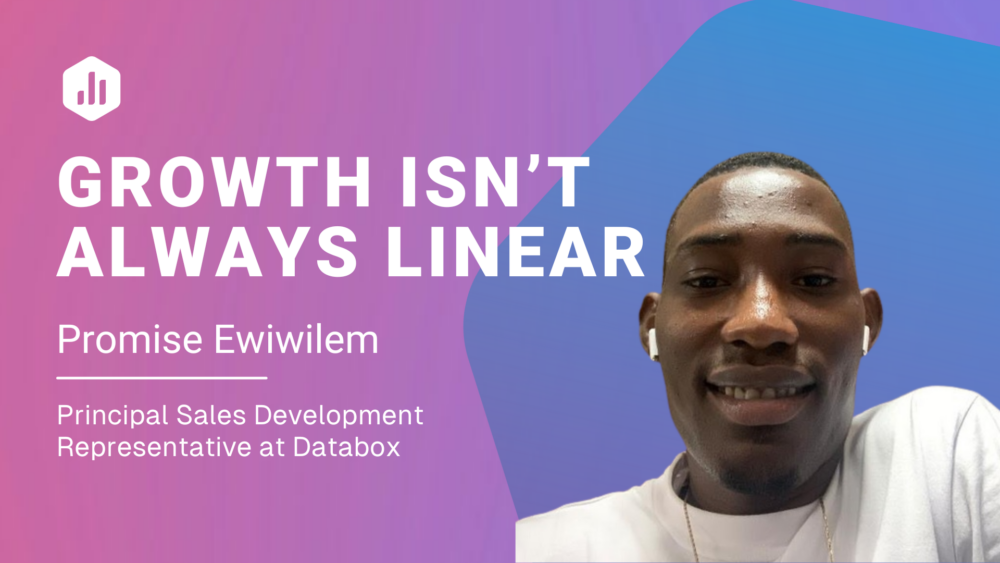Table of contents
Do you remember how overwhelming the first couple of weeks at a new job can feel?
While starting a new role is exciting, it can also bring a unique set of challenges. You will have new responsibilities, work processes, and skills, as well as an entirely new culture and team you need to adapt to and feel a part of to be fully confident in your role.
Having support during those first weeks can make a big difference in how quickly and successfully a new hire integrates into their new workplace. That’s why many companies, including Databox, have introduced a Buddy Program – an initiative where a dedicated member of the team offers support, encouragement, and empowerment to the new hire during their onboarding.
What is a Buddy?
A buddy is a team member who has been assigned to help a new hire settle into their new role by providing guidance, answering questions, and fostering connections. They are not just a point of contact but a friendly face who makes the transition smoother and more engaging.
In their role, buddies help new hires by:
- Sharing insights on company culture: They explain the values, daily practices, and behaviors that define the workplace.
- Answering questions: Whether it’s about tools, processes, or navigating the office, buddies are there to provide clarity.
- Encouraging social connections: They introduce the new hire to colleagues, helping them build relationships.
- Checking in regularly: By staying connected, they ensure the new hire feels supported and encouraged throughout their onboarding.
Think of it this way: a buddy is like a work best friend who helps you transform from an outsider into an engaged member of the team.
The Buddy Program at Databox
Databox is a Saas company with a tech-driven onboarding, which can be stressful at times. Our work environment is hybrid, with some of our teams working 100% remotely and others combining office and home settings. Therefore, we introduced the Buddy Program to give our onboarding process some warmth and human connection.
Buddies are an important part of our culture onboarding and help create a smoother, more engaging onboarding experience in a tech environment, where building genuine connections is vital.

The Impact of a Buddy Program
The Buddy Program isn’t just great for new hires—it benefits the entire company. By fostering an inclusive culture and strengthening team connections, it helps everyone feel a stronger sense of belonging. At Databox, it reflects how much we care about supporting our people, wherever they are and how they work.

Why Start the Buddy Program?
Starting a Buddy Program at your company can have many benefits. When we crafted ours, we had two goals in mind, namely:
- Establishing a Supportive Start
We wanted every new team member to feel welcomed, connected, and supported during their first 90 days. - Encouraging Cultural Integration
We aimed to help new hires seamlessly adjust to the Databox culture and work environment, ensuring they feel like an integral part of the team.
These objectives have helped us create an onboarding experience that goes beyond tasks and checklists, emphasizing the human side of starting a new job.
How we form our Buddy Program at Databox
1. Define Program Goals
Start by determining what you want to achieve with your Buddy Program. Whether it’s improving cultural integration, speeding up onboarding, or fostering cross-team connections, clearly defined goals will shape the program’s structure and help measure its success.
2. Choose the Right Buddies
Not everyone is suitable to be a buddy, so having people volunteer for that role might not be the best approach. Instead, identify team members who:
– Are approachable and have strong communication skills.
– Are open to dedicating time to the role.
– Are deeply familiar with your company’s culture and actively embody its values.
– Are respected as role models by their peers.
– Come from a different team than the new hire, to encourage cross-team collaboration.

To make things easier, we share general guidelines with each buddy to help them understand the expectations of their role.

3. Establish clear expectations
Buddies have to know what they have signed up for, so be clear in defining their responsibilities and the duration of their involvement, such as the first 30, 60, or 90 days of onboarding. Provide them with resources or a checklist to ensure consistent support, covering areas like explaining company culture, offering insights into tools and processes, or facilitating introductions. Check in with buddies periodically to remind them of their roles and offer support if needed.
Below is a more detailed list of tasks for each person involved in the program.

4. Facilitate the Introduction
Assign someone to oversee the program and handle buddy matches thoughtfully. Host an introduction meeting to kick-start the relationship. This meeting can include welcoming the new hire, explaining the buddy role in more detail, and setting expectations for both parties.
Starting on the right note builds trust and lays the foundation for a positive buddy experience.
5. Monitor and Adjust
Throughout the duration of the buddy role, gather feedback from both new hires and buddies to evaluate the program’s effectiveness. Regular check-ins help everyone stay engaged and on track.
At Databox, our People & Culture team conducts a 60-day check-in with new hires, which includes reviewing their buddy experience. This helps us identify areas for improvement and make necessary adjustments to our onboarding process.
6. Show recognition
Last but not least, remember to show gratitude to buddies who stepped into that role voluntarily on top of their tasks and went above and beyond to make new hires feel welcome. To make sure their extra effort doesn’t go unnoticed, show recognition and gratitude by celebrating them publicly or giving them small tokens of appreciation, such as a book or a gift card—this reinforces the value of the program and motivates continued participation.


By following these steps, you’ll create a Buddy Program that not only eases the onboarding process for new hires but also strengthens your company culture and fosters meaningful connections.
Conclusion
Incorporating a Buddy Program into your onboarding is a great opportunity to create lasting connections, encourage a positive and supportive work environment, and make new hires feel welcomed and supported. At Databox, this approach has transformed our culture onboarding experience and made it more comfortable while building a stronger sense of belonging and engagement among both new hires and buddies.
Investing in programs like this one shows your commitment to your people and them the guidance and support they need to be successful. If you’re looking to build a workplace where new hires thrive and your culture continues to grow stronger, a well-structured Buddy Program is a great place to start.












